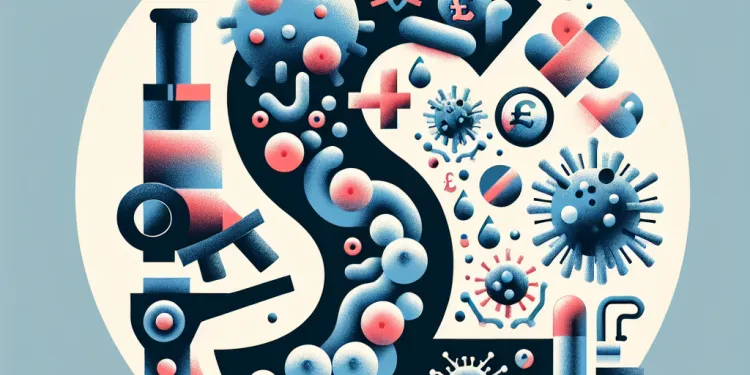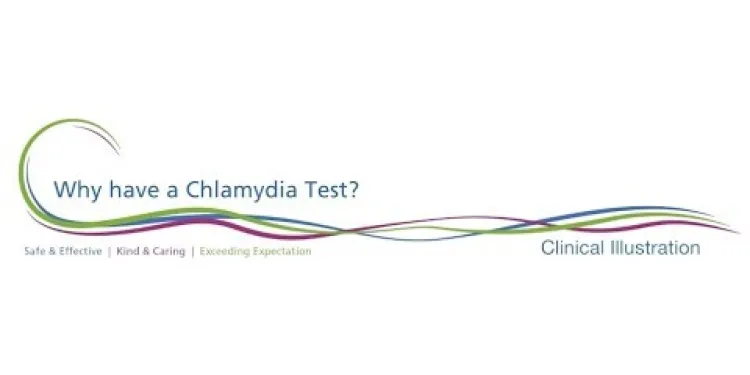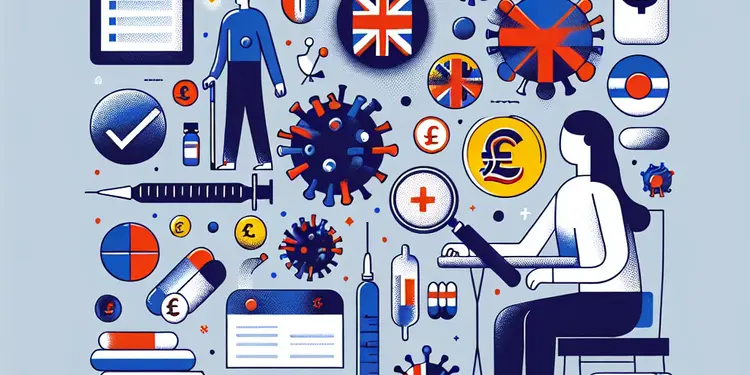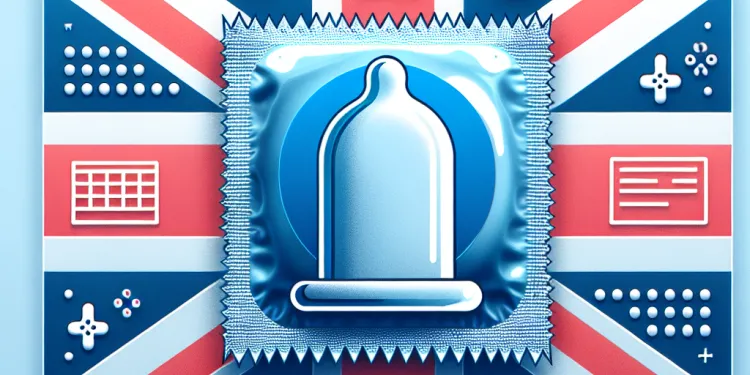Find Help
More Items From Ergsy search
-

What is chlamydia?
Relevance: 100%
-

NHS - Chlamydia
Relevance: 100%
-

Chlamydia: The Silent Threat
Relevance: 96%
-

Getting tested for Chlamydia
Relevance: 94%
-

Urine test for Gonorrhoea and Chlamydia
Relevance: 89%
-

Urine test for Gonorrhoea and Chlamydia
Relevance: 89%
-

Pharyngeal swab for Gonorrhoea and Chlamydia
Relevance: 87%
-

Vaginal Swab test for Gonorrhoea and Chlamydia
Relevance: 84%
-

Rectal swab test for Gonorrhoea and Chlamydia
Relevance: 83%
-

Sexually transmitted infections STIs
Relevance: 24%
-

NHS STI (Sexually Transmitted Infections) Information Video
Relevance: 23%
-

Understanding Your Sexual Health - Pelvic Inflammatory Disease
Relevance: 21%
-

BSL Pelvic inflammatory disease (PID)
Relevance: 20%
-

Reactive arthritis
Relevance: 19%
-

Let's Talk Sexual Health - Home Self Testing Kits
Relevance: 19%
-

Let's Talk Sexual Health - Home Self Testing Kits
Relevance: 16%
-

Female infertility explained
Relevance: 13%
-

What is a bubo?
Relevance: 12%
-

What role do infections play in chronic fatigue syndrome?
Relevance: 12%
-

Can using condoms fully protect against HPV?
Relevance: 6%
NHS - Chlamydia
What is Chlamydia?
Chlamydia is a common sexually transmitted infection (STI) caused by the bacterium Chlamydia trachomatis. It predominantly affects sexually active individuals, particularly those under 25. Many people infected with chlamydia are asymptomatic, meaning they exhibit no symptoms, which can lead to unintentional spreading of the infection.
Symptoms of Chlamydia
When symptoms do occur, they usually emerge one to three weeks after exposure. For women, symptoms might include unusual vaginal discharge, pain during sex, and bleeding between periods. Men may experience discharge from the penis, burning sensations during urination, and pain or swelling in the testicles. Both genders can suffer from rectal pain, discharge, or bleeding.
Transmission
Chlamydia is transmitted through sexual contact with an infected person, including vaginal, anal, and oral sex. It can also be passed from a pregnant woman to her baby during childbirth, potentially causing eye infections or pneumonia in newborns.
Testing and Diagnosis
Chlamydia testing is straightforward and usually involves providing a urine sample or a swab from the affected area. The NHS offers free chlamydia testing, particularly targeting individuals under 25. Home testing kits are also available and can be ordered online or obtained from clinics.
Treatment
Chlamydia is typically treated with a course of antibiotics, most commonly azithromycin or doxycycline. It is crucial to complete the prescribed course even if symptoms subside. Sexual partners should be informed and treated to prevent re-infection and further spread of the disease.
Prevention
Using condoms consistently and correctly during sex significantly reduces the risk of contracting chlamydia. Regular STI screenings, particularly for sexually active individuals under 25, are also important. Communicating openly with sexual partners about STI status and testing can further help in prevention.
Complications
Untreated chlamydia can lead to serious health issues. In women, it can progress to pelvic inflammatory disease (PID), potentially causing chronic pain, infertility, and ectopic pregnancies. Men may face complications like epididymitis, leading to pain and swelling in the testicles, and in rare cases, infertility.
Conclusion
Chlamydia is a common but treatable STI. Awareness, regular testing, and preventive measures are essential in curbing its spread and preventing complications. If you think you might have chlamydia or are at risk, seek testing and treatment through the NHS. Prompt action can safeguard your health and the health of your partners.
NHS - Chlamydia
What is Chlamydia?
Chlamydia is a common infection you can get from having sex. It is caused by bacteria. It mostly affects young people under 25. Most people with chlamydia do not have any signs that they are sick. This means they might give it to others without knowing.
Symptoms of Chlamydia
Some people get signs of chlamydia. This can happen one to three weeks after getting it. Women might have unusual fluid from the vagina, pain when having sex, or bleeding when not having a period. Men might have fluid from the penis, a burning feeling when peeing, or pain or swelling in the testicles. Both men and women can have pain or fluid from the back passage.
Transmission
You can get chlamydia by having sex with someone who has it. This includes vaginal, anal, and oral sex. A pregnant woman can also give it to her baby during birth, which can cause eye problems or lung infections in the baby.
Testing and Diagnosis
Testing for chlamydia is simple. It often involves giving a urine sample or a swab from the private parts. The NHS offers free chlamydia testing, especially for young people under 25. You can also get tests to do at home from the internet or clinics.
Treatment
Doctors can treat chlamydia with medicine called antibiotics. Common ones are azithromycin or doxycycline. It is important to take all the medicine, even if you start to feel better. Tell your sex partners so they can get treated too, to stop it from coming back or spreading.
Prevention
Using condoms every time you have sex helps protect you from chlamydia. Getting regular tests is also important, especially if you are under 25 and have sex. Talk openly with your sex partners about testing for infections.
Complications
If you do not treat chlamydia, it can cause big health problems. In women, it can lead to a serious condition called PID, which can cause pain and make it hard to have babies later. Men can get painful swelling in the testicles, and in rare cases, it can make them unable to have babies.
Conclusion
Chlamydia is common but can be treated. Knowing about it, getting tested, and using protection can help stop it. If you think you might have chlamydia, go to the NHS for help. Acting quickly can keep you and your partners healthy.
Frequently Asked Questions
What is chlamydia?
Chlamydia is a common sexually transmitted infection (STI) caused by the bacterium Chlamydia trachomatis. It can infect both men and women and typically affects the genital area, but it can also infect the rectum and throat.
How is chlamydia transmitted?
Chlamydia is primarily transmitted through unprotected vaginal, anal, or oral sex with an infected person. It can also be passed from an infected mother to her baby during childbirth.
What are the symptoms of chlamydia?
Chlamydia often has no symptoms, particularly in women. When symptoms do occur, they can include pain during urination, unusual discharge from the penis or vagina, and pain or bleeding during sex. In men, symptoms can also include pain and swelling in the testicles.
How can I get tested for chlamydia?
You can get tested for chlamydia at various places including sexual health clinics, your GP, and some pharmacies. The test usually involves a urine sample or a swab from the affected area.
Can chlamydia be cured?
Yes, chlamydia can be easily cured with a course of antibiotics. The most commonly prescribed antibiotics are azithromycin and doxycycline.
What happens if chlamydia is left untreated?
If left untreated, chlamydia can lead to serious health problems. In women, it can cause pelvic inflammatory disease (PID), which can result in chronic pain and infertility. In men, untreated chlamydia can lead to epididymitis, which can also result in infertility.
Should my partner also get tested and treated?
Yes, if you have been diagnosed with chlamydia, it is important that your current sexual partner and any recent partners get tested and treated to prevent re-infection and further spread of the infection.
How soon can I have sex after treatment?
You should avoid having sex (including oral and anal sex) until you and your partner have completed the treatment and any symptoms have cleared up. This usually means waiting at least 7 days after a single-dose treatment or until completion of a 7-day course of antibiotics.
Can chlamydia come back after treatment?
While the antibiotics will cure the current infection, you can get chlamydia again if you have unprotected sex with an infected person.
How can I prevent chlamydia?
To prevent chlamydia, use condoms consistently and correctly during vaginal, anal, and oral sex. Regular screening and sexual health check-ups also help in early detection and prevention of the spread of the infection.
Is chlamydia testing free on the NHS?
Yes, testing for chlamydia is free on the NHS. You can get tested at sexual health clinics, GPs, and some pharmacies.
Can chlamydia affect pregnancy?
Yes, if a pregnant woman has chlamydia, it can be passed to the baby during childbirth, leading to complications such as eye infections and pneumonia in the newborn. It is important for pregnant women to get tested and treated if necessary.
Does chlamydia always show symptoms?
No, chlamydia does not always show symptoms. Many people with chlamydia have no symptoms at all, which is why regular testing is important, especially if you have multiple sexual partners.
Can I get chlamydia from kissing?
No, chlamydia is not transmitted through kissing. It is typically spread through unprotected vaginal, anal, or oral sex.
Can chlamydia cause long-term health issues?
Yes, if untreated, chlamydia can cause long-term health issues such as pelvic inflammatory disease (PID) in women and epididymitis in men, both of which can lead to infertility and chronic pain.
What is chlamydia?
Chlamydia is a kind of germ that can make you sick. It is very small and you can't see it without a microscope.
Chlamydia is a type of infection. It is important to see a doctor if you feel sick.
You might not know if you have chlamydia because it does not always cause symptoms. But it can still be harmful.
It's a good idea to talk to a doctor or nurse. They can help you get tests and medicine if you need it.
Using pictures or diagrams can help you understand better. Also, you can ask someone you trust for help reading this.
Chlamydia is a germ that can make people sick. It is spread by touching private parts during sex. Both men and women can get it. It mostly makes private parts sick, but it can also make the bottom and throat sick.
How does chlamydia spread?
Chlamydia is a germ that can make people sick. It spreads when people have sex. To stay healthy, use a condom. If you think you might be sick, see a doctor.
Chlamydia is a sickness you can get from having sex without a condom. This can be through vaginal, anal, or oral sex with someone who has chlamydia. A mom with chlamydia can also give it to her baby when the baby is born.
What signs show you might have chlamydia?
Chlamydia is a sickness. You might not feel sick if you have it. This is often true for women. But sometimes you can feel things that are different.
If you notice these things, you should tell an adult or see a doctor:
- Peeing hurts.
- Liquid that looks or smells different comes from the penis or vagina.
- It hurts or you bleed when having sex.
- Boys might feel pain or have big balls (testicles).
If you are worried, it's good to talk to someone you trust. You can also visit a doctor to check. The doctor can help make you better.
Using tools like picture charts or talking books can help understand these ideas better. Asking questions is also a good way to learn more.
How can I get tested for chlamydia?
If you think you might have chlamydia, it's important to get a test. Here are simple steps you can follow:
- Visit a doctor or a nurse. You can go to a clinic or a health center.
- Tell them you want to get tested for chlamydia. They will help you.
- You might need to give a pee sample or let them take a swab from you.
- The doctor or nurse will send the sample to a lab to check.
- You'll get the results after a few days. They will tell you what to do next.
If you find reading hard, ask someone you trust to help you. There are tools that can read text out loud, like speech software. You can also use pictures to help understand the steps.
You can get a test for chlamydia at different places like sexual health clinics, your family doctor, or some drug stores. To do the test, you might need to give a pee sample or the doctor might use a small stick to take a sample from the area that might be infected.
--- Here's some extra help: - You can ask someone you trust to go with you to the doctor. - It's okay to ask the doctor or nurse to explain things slowly. - Take a deep breath and stay calm before the test.Can you get rid of chlamydia?
Yes, you can get rid of chlamydia. A doctor can give you medicine to make it better. It is important to take all the medicine, even if you feel better before it is finished. This will help make sure the infection goes away.
If you have questions, you can ask the doctor or nurse. It is okay to ask for help when reading or understanding this information too. You can use tools like picture aids or stories to learn more.
Yes, chlamydia can be cured with medicine called antibiotics. Doctors usually give two types. They are called azithromycin and doxycycline.
What happens if you don’t treat chlamydia?
If you don't treat chlamydia, it can cause big health problems. In women, it can cause a disease called pelvic inflammatory disease (PID). This can make it hurt a lot and make it hard to have babies. In men, not treating chlamydia can cause a problem called epididymitis, which can also make it hard to have babies.
It's important to see a doctor if you think you might have chlamydia. They can help you get better.
Using tools like picture stories or talking to a trusted friend can help you understand more about chlamydia and why it's important to get treatment.
Should my partner get tested and treated too?
It's a good idea for your partner to see a doctor. They can check if your partner needs help too. This keeps both of you healthy. You can both talk to the doctor together to learn more.
Here are some things that might help:
- Draw pictures or use charts to explain.
- Point to parts of the body when talking about them.
- Ask questions if you don't understand.
If the doctor says you have chlamydia, it's important that your boyfriend, girlfriend, or anyone you’ve been with gets a test and medicine too. This stops the germs from going to more people and stops you from getting sick again.
When can I have sex after treatment?
After you get treatment, you might wonder when you can have sex again. It is important to wait a bit. Ask your doctor or nurse for the best time to start again. They can help you with safe advice.
Simple tips to help you:
- Write down any questions you have before seeing your doctor.
- Take a friend or family member with you to your appointment to help remember the advice.
- Use a calendar to mark the date given by the doctor when you can have sex again.
Wait to have sex until both you and your partner have finished the medicine and feel better. This includes any kind of sex, like oral or anal sex. Usually, you should wait at least 7 days after taking a one-time treatment or after a 7-day course of antibiotics.
If you need help remembering this, you can use a calendar to mark the days or set reminders on your phone. Having a trusted friend or family member for support can also be helpful.
Can chlamydia come back after treatment?
Yes, chlamydia can come back after it is treated. You might get it again if:
- You have not finished all your medicine.
- Your partner has not been treated.
- You get a new infection from another person.
To help you remember to take your medicine, you can:
- Set reminders on your phone.
- Use a pill organizer.
- Ask someone to help remind you.
Make sure you and your partner both get treated. You should also talk to a doctor if you have questions.
The medicine you take will make you better. But you can get sick again if you have sex without a condom with someone who is sick.
How can I stop getting chlamydia?
Chlamydia is an illness you can get from kissing or touching people. Here are some simple ways to stay safe:
- Use condoms: Wear a condom when kissing or touching someone.
- Talk to your friend: Ask them if they are safe from germs.
- Have check-ups: Visit a doctor to make sure you are healthy.
If you need help, you can:
- Talk to an adult: Ask a grown-up you trust for advice.
- Use online guides: Look for easy information online.
- Use pictures and videos: These can help you understand better.
To stop getting chlamydia, use condoms every time you have sex. This means for vaginal, anal, and oral sex. Go to the doctor regularly to check for infections. This helps find problems early and stop infections from spreading.
Can you get a chlamydia test for free with the NHS?
You can get a chlamydia test for free from the NHS. Here’s how:
- Visit your doctor (GP) or a sexual health clinic.
- You might also find a test at some pharmacies.
To help you, you can:
- Ask someone you trust to go with you.
- Use simple guides or pictures to understand more.
- Talk to a nurse or doctor. They are there to help you.
Yes, you can get a free test for chlamydia on the NHS. You can have the test at places like sexual health clinics, your doctor's office (GP), and some pharmacies.
Can chlamydia affect a baby when you are pregnant?
Yes, if a woman is going to have a baby and she has chlamydia, the baby can catch it when being born. This can make the baby sick with eye problems or lung problems. It is important for pregnant women to see a doctor and get medicine if they need it.
For help with reading, you can use apps that read text out loud, or ask someone you trust to explain the words to you.
Do you always get signs if you have chlamydia?
Not everyone gets signs if they have chlamydia. Some people feel fine and don't know they have it.
If you think you might have chlamydia, it's a good idea to see a doctor. They can do a test to check.
Using pictures or talking to someone can also help you understand better.
No, chlamydia does not always make you feel sick or show signs. Many people with chlamydia do not feel anything different in their body. This is why it's important to get tested often, especially if you have more than one boyfriend or girlfriend. You can use checkup reminders on your phone or talk to a doctor if you have questions.
Can I catch chlamydia from kissing?
No, you cannot catch chlamydia from kissing. Chlamydia is an infection that spreads in other ways.
If you have questions, you can talk to a doctor. They can help.
Remember to ask an adult you trust if you need more information.
No, you can’t get chlamydia from kissing. It mostly spreads when people have sex without a condom.
Can chlamydia make you sick for a long time?
Chlamydia is a germ that can make you sick. If you do not get medicine, it can make you sick for a long time. It is important to see a doctor for help.
Tips to help understand:
- Ask a grown-up to read with you.
- Use picture books about health.
- Watch videos that explain chlamydia.
- Use apps that read text out loud.
Yes, if you don't treat chlamydia, it can cause big health problems. For women, it can lead to a sickness called pelvic inflammatory disease (PID). For men, it can cause something called epididymitis. Both of these can make it hard to have babies and can also hurt for a long time.
If reading is hard, try to:
- Read out loud with someone.
- Use pictures or diagrams to help understand.
- Ask for help from a teacher or friend.
- Take breaks to rest your mind while reading.
Useful Links
- Ergsy carfully checks the information in the videos we provide here.
- Videos shown by Youtube after a video has completed, have NOT been reviewed by ERGSY.
- To view, click the arrow in centre of video.
- Most of the videos you find here will have subtitles and/or closed captions available.
- You may need to turn these on, and choose your preferred language.
- Go to the video you'd like to watch.
- If closed captions (CC) are available, settings will be visible on the bottom right of the video player.
- To turn on Captions, click settings .
- To turn off Captions, click settings again.
More Items From Ergsy search
-

What is chlamydia?
Relevance: 100%
-

NHS - Chlamydia
Relevance: 100%
-

Chlamydia: The Silent Threat
Relevance: 96%
-

Getting tested for Chlamydia
Relevance: 94%
-

Urine test for Gonorrhoea and Chlamydia
Relevance: 89%
-

Urine test for Gonorrhoea and Chlamydia
Relevance: 89%
-

Pharyngeal swab for Gonorrhoea and Chlamydia
Relevance: 87%
-

Vaginal Swab test for Gonorrhoea and Chlamydia
Relevance: 84%
-

Rectal swab test for Gonorrhoea and Chlamydia
Relevance: 83%
-

Sexually transmitted infections STIs
Relevance: 24%
-

NHS STI (Sexually Transmitted Infections) Information Video
Relevance: 23%
-

Understanding Your Sexual Health - Pelvic Inflammatory Disease
Relevance: 21%
-

BSL Pelvic inflammatory disease (PID)
Relevance: 20%
-

Reactive arthritis
Relevance: 19%
-

Let's Talk Sexual Health - Home Self Testing Kits
Relevance: 19%
-

Let's Talk Sexual Health - Home Self Testing Kits
Relevance: 16%
-

Female infertility explained
Relevance: 13%
-

What is a bubo?
Relevance: 12%
-

What role do infections play in chronic fatigue syndrome?
Relevance: 12%
-

Can using condoms fully protect against HPV?
Relevance: 6%


